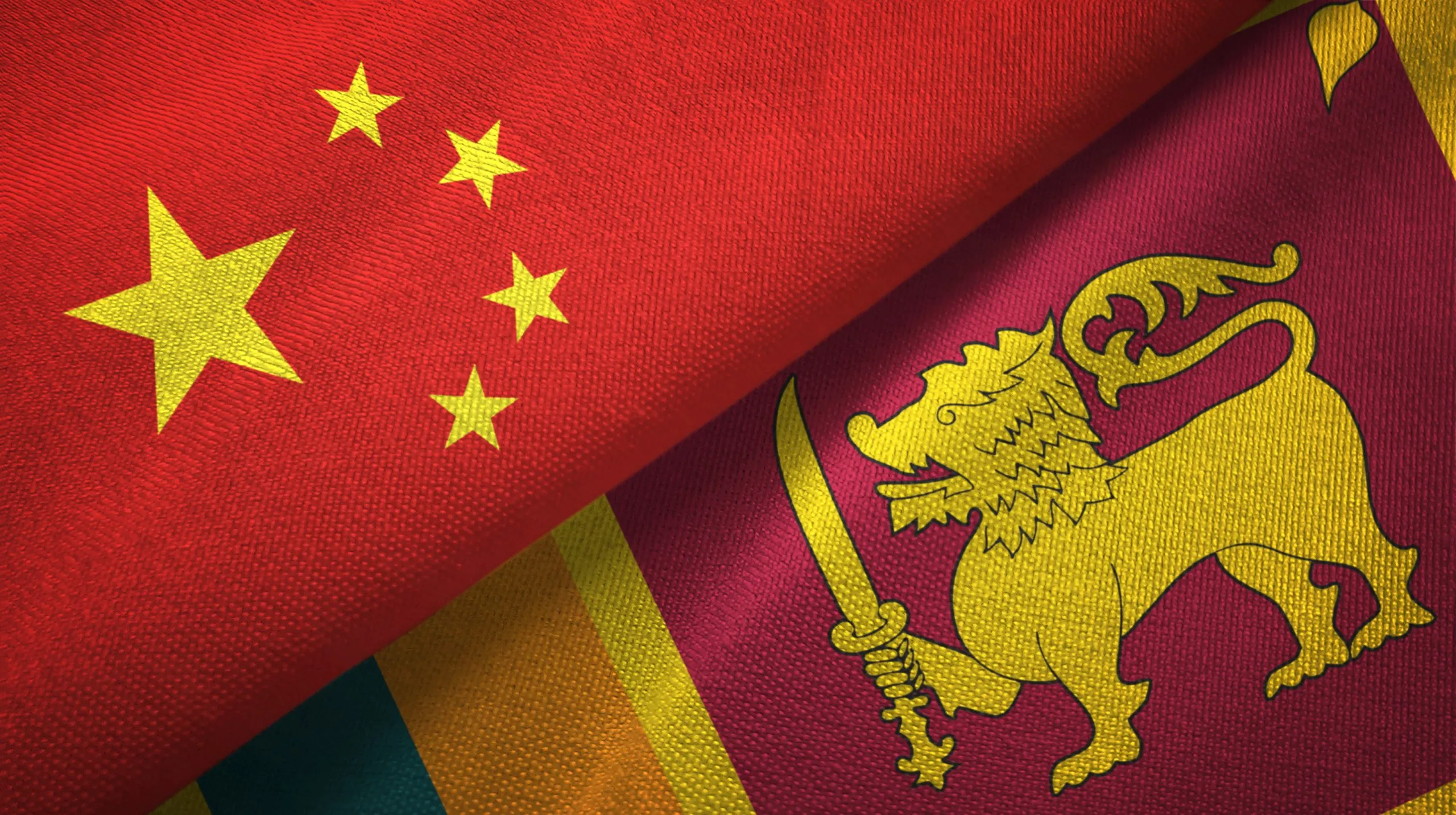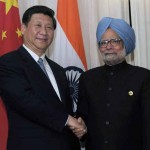IDR Blog
China’s Economic Invasion of Sri Lanka

Chinese foreign minister Wang Yi is on a two-day visit to Sri Lanka (Jan 8-9) to mark the 65th Anniversary of Sri Lanka-China diplomatic relations and 70th anniversary of the Rubber-Rice Pact between both countries signed in 1952; a trade agreement for Sri Lanka to supply rubber to China in exchange for rice. Interestingly, Yi is celebrating 70th anniversary of the Rubber-Rice Pact at Colombo when China’s reputation is mired with the shipment of garbage quality fertilizer to Sri Lanka and 65th anniversary of diplomatic relations when Sri Lanka’s crippling economic crisis is partly because of the debt it owes to China.
Sri Lanka is experiencing an acute economic crisis due to job and earning losses, high food inflation and diminishing finances. According to the World Bank, inflation has been spurred by the government printing money to pay off domestic loans and foreign bonds. The report also says that the share of people living under the poverty line has likely increased by over 5,00,000 people since the onset of COVID-19; an increase of 11.7 percent. Moody’s has downgraded its rating for Sri Lanka’s sovereign rating by two notches to Caa1 with a stable outlook in September, whereas S&P brought its rating down to B- in September and CCC+ with a stable outlook in December. Fitch also downgraded Sri Lanka’s sovereign rating to B- in April and CCC in November.
Wang Yi is reportedly offering more Chinese investments in Sri Lanka in addition to the investment of US$1.4 billion for the Colombo Port City project. Nothing wrong in that but it is the modus operandi of China with its hidden debt traps that Sri Lanka will need to watch out for. Concurrently, a Chinese firm has launched international arbitration against Sri Lanka in Singapore for rejecting the large consignment of its fertilizer and not arriving at an amicable solution.
Five days before Wang Yi’s arrival at Colombo, former Sri Lankan education minister and ruling party Member of Parliament Wijeyadasa Rajapakshe shot off a 45-page letter on January 3, 2022, to Chinese President Xi Jinping. The letter lays bare Beijing’s debt-trap antics and how China has debt-trapped Sri Lanka through its Belt and Road Initiative (BRI). Salient issues raised in the letter include the following:
-
- Deals between Colombo and Beijing have left a trail of corruption, debt trapping Sri Lanka.
- China first initiated action to make Sri Lanka economically bankrupt and the Hambantota Port project was stalled after Mahinda Rajapaksa became President (November 2005) followed by scripting new understandings.
- China gave loans to the Mahinda Rajapaksa government at commercial rate of over 6 percent interest compared to loans available from international entities at 0.01 percent to 1 percent interest, and thereafter entered into several other transactions on a slew of projects.
- China’s economic invasion is putting Sri Lanka’s future in jeopardy.
- Chinese friendship is no longer genuine and candid, and Beijing is dismantling peace in the region by making Sri Lanka a victim of power struggle with other nations.
- China has been charging ‘extra’ for COVID-19 vaccines exported to Sri Lanka.
- Sub-standard fertilizers were supplied to Sri Lanka by China.
Through his letter, Wijeyadasa Rajapakshe blames China, Sri Lankan governments led by Mahinda Rajapaksa, as well his own political party – Sri Lanka Freedom Party (SLFP) presently ruling Sri Lanka. It is educative for the world but Xi Jinping and his caboodle will only laugh at it because as long as corrupt politicians are available abroad why would China mend its ways?
China’s Belt and Road Initiative has caused dozens of lower and middle-income countries to accumulate $385 billion in “hidden debts” to Beijing according to AidData, an international development research lab based at Virginia’s College of William & Mary. Researchers found that these nations’ debt obligations to China are significantly larger than international research institutions, credit ratings agencies or intergovernmental organizations estimates. The report claims that 42 countries now have public debt exposure to China that exceeds 10 percent of their GDP.
China actually deserves to be collectively refused repayment of loans by countries debt-trapped by Beijing, who should also kicking out the Chinese companies in respective countries. But this is unlikely to happen. The irony also is that the much vaunted US-led G-7 plan of Build Back Better World (B3W) has no investment plans for a strategically important country like Sri Lanka; though B3W is supposedly alternative to China’s BRI and the US harps on Indo-Pacific but has its heart and soul in Western Pacific. On the contrary, the policy of US sanctions is pushing the sanctioned countries into China’s arms.
In December 2021, the US sanctioned two Sri Lankan military officers for human rights violations – one naval officer and one former army staff surgeon. Earlier in February 2020, the US had imposed sanctions on General Shavendra Silva, then acting Chief of Defence Staff and Commander of the Sri Lanka Army. Though these moves are largely symbolic denying entry to the US, America’s own poor human rights record is increasingly coming under discussion and criticism. Moreover, it may be recalled that in 2018 the US withdrew from the UN Human Rights Council. Also, if the US is actually interested in human rights, how come there are no sanctions against Pakistan for the genocide in Balochistan past several years which is continuing? Is it because Pakistan partners the US in advancing America’s national interests by use of terrorist organizations?
India has traditionally been among Sri Lanka’s largest trading partners and Sri Lanka remains among the largest trade partners of India within SAARC. The bilateral trade in 2020 was about $3.6 billion. India is also one of the largest contributors to foreign direct investment in Sri Lanka. The bilateral relations soured somewhat during 2021 when Sri Lanka reneged on a tripartite India-Japan-Sri Lanka project in the island nation. However, now other investment opportunities are being provided by Sri Lanka. India also recently provided Sri Lanka fertilizers when Sri Lanka had to reject the fertilizers supplied by China on grounds of poor quality.
Following the visit of Sri Lankan Finance Minister Basil Rajapaksa (brother to President Gotabaya Rajapaksa and Prime Minister Mahinda Rajapaksa to New Delhi in December 2021, India is reportedly working out a package to assist Sri Lanka on urgent basis comprising: a food and health security package (along with a line of credit); an energy security package (also with a line of credit); currency swap to help address Sri Lanka’s balance of payment, and; push Indian investments in different sectors of Sri Lanka contributing to growth and boosting employment avenues. The energy package envisages import of fuel from India, and early modernization of Trincomalee Oil Tank Farm.
Finance Ministers of both India and Sri Lanka have opened direct communication lines. A statement issued by the Sri Lankan government read, “The Sri Lankan finance minister’s discussions with his Indian counterpart and the external affairs minister focussed on a whole gamut of issues of mutual importance pertaining to the bilateral relationship with particular attention on the economic cooperation aspect. Both sides expressed satisfaction over the evolving trajectory of the bilateral relationship. During the discussions, they identified ways and means through which the existing bilateral economic relationship between the two countries could be further broadened and deepened.”
The question of devolution of powers to the Tamils in Sri Lanka based on the Indo-Sri Lanka Peace Accord signed in Colombo on July 29, 1987, between Indian Prime Minister Rajiv Gandhi and Sri Lankan President JR Jayewardene keeps cropping up time and again. India has its own political compulsions in pushing for Tamil rights. However, Sri Lanka will always have a Sinhala or Sinhala-majority government. Therefore, a decision for devolution of powers to Tamils, including the level of devolution, will be taken by the Sri Lankan government as and when deemed fit. Many in Sri Lanka consider this an ‘internal’ issue which should not be meddled by outside powers.
It would therefore be prudent for India to continue focusing on boosting economic activity and development for the benefit of both nations, as well as to ensure peace in the region.




